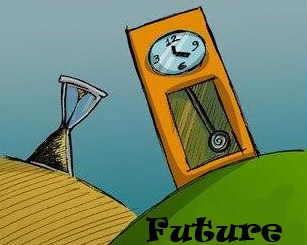Aprender Inglês

There are many ways of talking about the future in English. Which way you choose depends on how you see the future. Is the future event planned or unplanned, a schedule, or a prediction?
- Saying 'no' Nicely
By Kenneth Beare, About.com Guide Sometimes you need to say no when someone makes a suggestion, offers something or asks you to do something for them. Of course, saying just 'no' can be rather rude. Here are some of the most common ways...
- Top English Hints
Tags: unreal situationsIT'S (HIGH) TIME + PAST SUBJUNCTIVE1. It's (high) time + past subjunctive expresses that something should be done and that it is already a little late:It's time you went to bed. You'll have to...
- How To Use Ever And The Difference Between Ever And Always
ever = at any time Ever usually means at any time and can be used to refer to past, present and future situations. The converse, meaning at no time, is never. Ever is mainly used inquestions. Sometimes it is used...
- Connected Speech & Linking | American English Pronunciation
Many of my students say they want to sound just like a native English speaker. I understand the desire, but my answer to them is always the same. The goal is not to be perfect, but to progress; to beunderstood when speaking...
- Savoring And Improving
Although the difficulties, the journey to speak English is a blessing for the mind. It is known by the cientists and neurolinguistics that the brain gets stronger when one is learning a new language or how to play a musical instrument....
Aprender Inglês
Using Future Form

There are many ways of talking about the future in English. Which way you choose depends on how you see the future. Is the future event planned or unplanned, a schedule, or a prediction?
Making predictions in English
You can use both will and going to to make predictions.
For example, "I think the Labour party willlose the next election." Or "I think the Labour party are going to lose the next election."
If you can make a prediction based on what you see now, we use going to.
For example, "You're driving too fast, you're going to hit the car in front!"
Future plans and arrangements
If something has already been planned, use going to with the verb, or the Present Continuous tense.
"I'm going to take my exams next month."
"He's visiting a client on Tuesday."
Unplanned future
When we decide to do something at the moment of speaking, we use will.
"The phone's ringing ? I'll answer it."
(You only answer the phone when it starts ringing.)
(You only answer the phone when it starts ringing.)
Future schedules
When we want to talk about a schedule, we use the Present Simple tense.
"The plane leaves in half an hour ? we'd better hurry."
"Next week I fly to Italy, then on Tuesday, I'm in Spain."
Events in progress at a time in the future
To talk about something that will be in progress at a time in the future, use will be doing.
"For example, "This time next week, I'll be sitting on a plane."
We can also use this form to make polite requests.
"Will you be using the car tomorrow?"
(If you won't, can I use it?)
(If you won't, can I use it?)
Events that will be completed by a time in the future
If you want to say that something will be completed by a time in the future, use will have done.
"I'll have finished the report by this afternoon."
Final tip
Many learners of English overuse will and going to. Try using all the different future forms so that you become more confident.
Source; http://www.english-at-home.com/grammar/using-future-forms/
loading...
- Saying 'no' Nicely
By Kenneth Beare, About.com Guide Sometimes you need to say no when someone makes a suggestion, offers something or asks you to do something for them. Of course, saying just 'no' can be rather rude. Here are some of the most common ways...
- Top English Hints
Tags: unreal situationsIT'S (HIGH) TIME + PAST SUBJUNCTIVE1. It's (high) time + past subjunctive expresses that something should be done and that it is already a little late:It's time you went to bed. You'll have to...
- How To Use Ever And The Difference Between Ever And Always
ever = at any time Ever usually means at any time and can be used to refer to past, present and future situations. The converse, meaning at no time, is never. Ever is mainly used inquestions. Sometimes it is used...
- Connected Speech & Linking | American English Pronunciation
Many of my students say they want to sound just like a native English speaker. I understand the desire, but my answer to them is always the same. The goal is not to be perfect, but to progress; to beunderstood when speaking...
- Savoring And Improving
Although the difficulties, the journey to speak English is a blessing for the mind. It is known by the cientists and neurolinguistics that the brain gets stronger when one is learning a new language or how to play a musical instrument....
